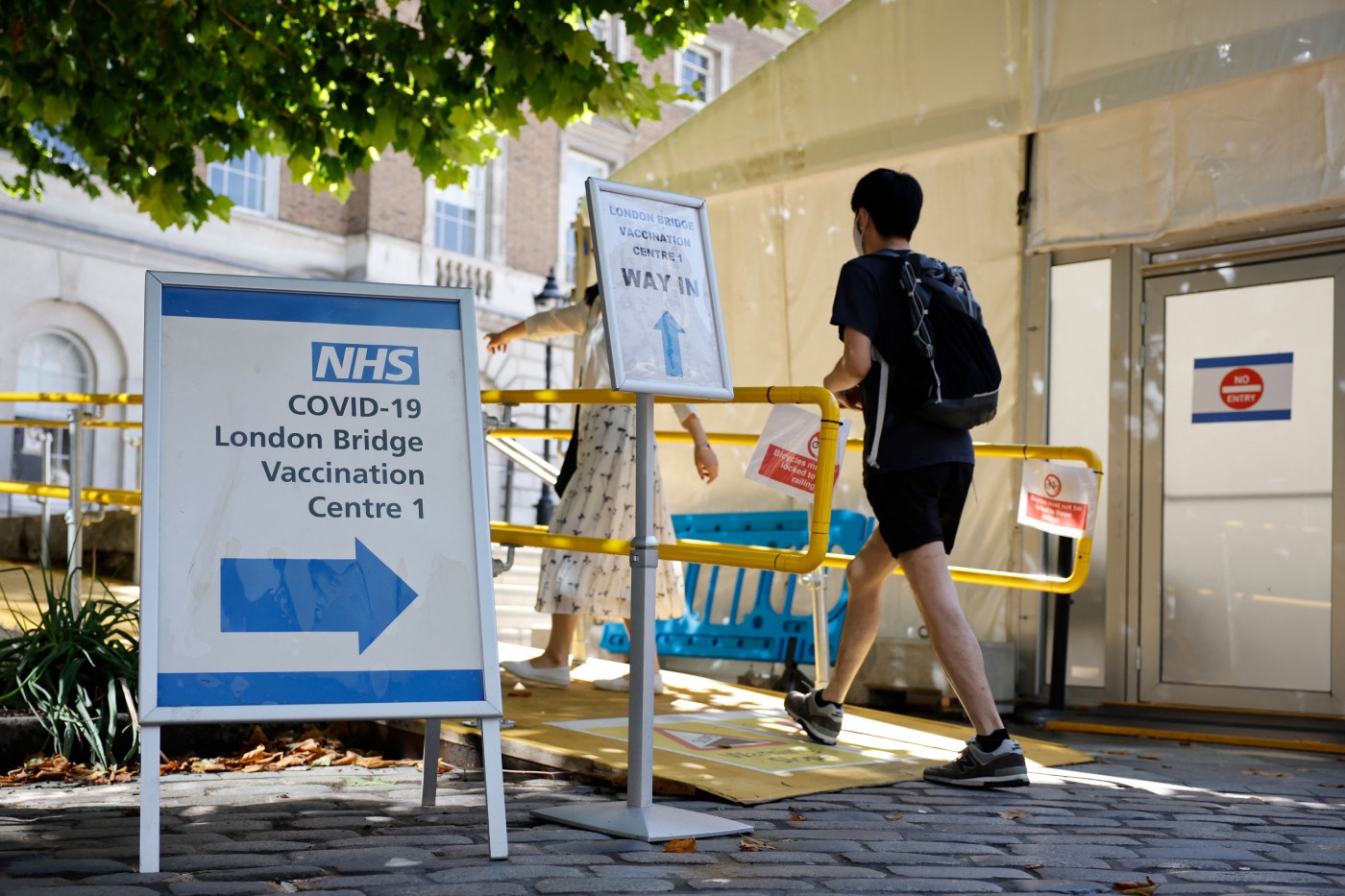Coronavirus vaccines have so far saved 100,000 lives, PHE study reveals
‘Phenomenal’ news a ‘testament to the UK’s vaccination programme’, health secretary says

A free daily email with the biggest news stories of the day – and the best features from TheWeek.com
You are now subscribed
Your newsletter sign-up was successful
The UK’s vaccination programme has so far saved more than 100,000 lives and prevented more than 24 million infections, according to a Public Health England (PHE) study.
The latest estimates from PHE suggest that 105,900 deaths and 24,088,000 infections have been prevented as a result of the speedy jab rollout.
Health Secretary Sajid Javid said the new data is “phenomenal” and a “testament to the UK’s vaccination programme”, adding that the vaccines have made a “life-changing difference” in the battle against the pandemic.
The Week
Escape your echo chamber. Get the facts behind the news, plus analysis from multiple perspectives.

Sign up for The Week's Free Newsletters
From our morning news briefing to a weekly Good News Newsletter, get the best of The Week delivered directly to your inbox.
From our morning news briefing to a weekly Good News Newsletter, get the best of The Week delivered directly to your inbox.
Jabs “continue to help us build a stronger wall of defence every day”, he added, and are “keeping people safe from harm and helping us reclaim our freedoms so we can return to normal life”.
Dr Mary Ramsay, head of immunisation at PHE, said: “It is remarkable that the vaccine programme may now have prevented over 100,000 deaths in England alone. Everyone that has come forward for their vaccine has played a part in this vital effort.”
The Financial Times explained that the data is calculated by comparing the estimated impact of vaccination on infection and mortality against a worst-case scenario where no vaccines and no additional non-pharmaceutical interventions were in place to reduce infections and mortality.
The PHE study comes as separate research reveals that the increased risk of being admitted to hospital or dying due to blood clots for someone with coronavirus is “much higher” than in people who had a first dose of vaccine.
A free daily email with the biggest news stories of the day – and the best features from TheWeek.com
Back in April, confidence in the UK’s Covid vaccination programme risked being undermined by news that under-30s would be offered an alternative to the Oxford-AstraZeneca jab as a result of blood clot concerns.
However, the Evening Standard reported yesterday that a study of more than 29 million people aged 16 or over who had a first dose of either AstraZeneca or Pfizer vaccine in England between December and April found “the risk of thrombocytopenia in someone with coronavirus is almost nine times higher” than in someone who has had one dose of the UK-developed AstraZeneca jab.
Julia Hippisley-Cox, professor of clinical epidemiology and general practice at the University of Oxford, said: “There’s always some unanticipated effects with any medicine and I think that this study design is the most robust way of looking at detecting these events and putting them in some context.”
Health officials are “braced for a bank holiday surge of coronavirus cases” as about 500,000 people head to music festivals and millions more venture to tourism hotspots, The Guardian said.
At least eight festivals are expected to attract around half a million people across England – including Leeds and Reading, and Creamfields in Cheshire. With the UK expected to enjoy warm and sunny weather over the weekend, data from the Rail Delivery Group also showed that train ticket sales for seaside destinations exceeded pre-pandemic levels.
Officials warned on Thursday that, despite the success of the vaccination programme, parts of the NHS are battling “unprecedented high-level demand” and that more cases could disrupt the return of schools next week.
-
 Crisis in Cuba: a ‘golden opportunity’ for Washington?
Crisis in Cuba: a ‘golden opportunity’ for Washington?Talking Point The Trump administration is applying the pressure, and with Latin America swinging to the right, Havana is becoming more ‘politically isolated’
-
 5 thoroughly redacted cartoons about Pam Bondi protecting predators
5 thoroughly redacted cartoons about Pam Bondi protecting predatorsCartoons Artists take on the real victim, types of protection, and more
-
 Palestine Action and the trouble with defining terrorism
Palestine Action and the trouble with defining terrorismIn the Spotlight The issues with proscribing the group ‘became apparent as soon as the police began putting it into practice’
-
 A Nipah virus outbreak in India has brought back Covid-era surveillance
A Nipah virus outbreak in India has brought back Covid-era surveillanceUnder the radar The disease can spread through animals and humans
-
 Trump HHS slashes advised child vaccinations
Trump HHS slashes advised child vaccinationsSpeed Read In a widely condemned move, the CDC will now recommend that children get vaccinated against 11 communicable diseases, not 17
-
 A fentanyl vaccine may be on the horizon
A fentanyl vaccine may be on the horizonUnder the radar Taking a serious jab at the opioid epidemic
-
 Health: Will Kennedy dismantle U.S. immunization policy?
Health: Will Kennedy dismantle U.S. immunization policy?Feature ‘America’s vaccine playbook is being rewritten by people who don’t believe in them’
-
 How dangerous is the ‘K’ strain super-flu?
How dangerous is the ‘K’ strain super-flu?The Explainer Surge in cases of new variant H3N2 flu in UK and around the world
-
 Vaccine critic quietly named CDC’s No. 2 official
Vaccine critic quietly named CDC’s No. 2 officialSpeed Read Dr. Ralph Abraham joins another prominent vaccine critic, HHS Secretary Robert F. Kennedy Jr.
-
 This flu season could be worse than usual
This flu season could be worse than usualIn the spotlight A new subvariant is infecting several countries
-
 Covid-19 mRNA vaccines could help fight cancer
Covid-19 mRNA vaccines could help fight cancerUnder the radar They boost the immune system